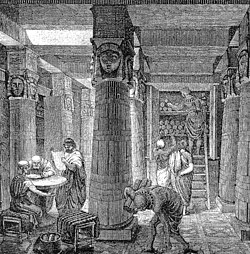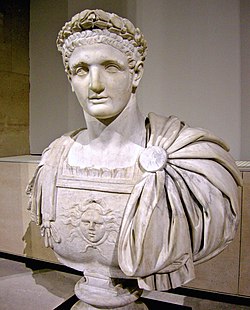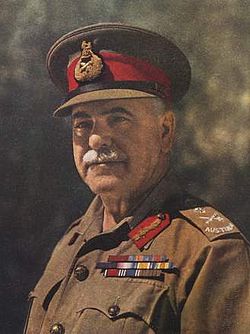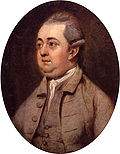Portal:History
The History Portal
History is the systematic study of the past, focusing primarily on the human past. As an academic discipline, it analyses and interprets evidence to construct narratives about what happened and explain why it happened. Some theorists categorize history as a social science, while others see it as part of the humanities or consider it a hybrid discipline. Similar debates surround the purpose of history—for example, whether its main aim is theoretical, to uncover the truth, or practical, to learn lessons from the past. In a more general sense, the term history refers not to an academic field but to the past itself, times in the past, or to individual texts about the past.
Historical research relies on primary and secondary sources to reconstruct past events and validate interpretations. Source criticism is used to evaluate these sources, assessing their authenticity, content, and reliability. Historians strive to integrate the perspectives of several sources to develop a coherent narrative. Different schools of thought, such as positivism, the Annales school, Marxism, and postmodernism, have distinct methodological approaches.
History is a broad discipline encompassing many branches. Some focus on specific time periods, such as ancient history, while others concentrate on particular geographic regions, such as the history of Africa. Thematic categorizations include political history, military history, social history, and economic history. Branches associated with specific research methods and sources include quantitative history, comparative history, and oral history.
History emerged as a field of inquiry in antiquity to replace myth-infused narratives, with influential early traditions originating in Greece, China, and later in the Islamic world. Historical writing evolved throughout the ages and became increasingly professional, particularly during the 19th century, when a rigorous methodology and various academic institutions were established. History is related to many fields, including historiography, philosophy, education, and politics. (Full article...)
Featured picture
Did you know (auto generated)

- ... that Veto, inspired by the history of the Polish–Lithuanian Commonwealth, is considered to be the first Polish collectible card game?
- ... that the Picts disappeared from the historical record after the devastation suffered following the Battle of Dollar?
- ... that the NFL listed the 4th and 26 game as one of the greatest in the first 100 years of its history?
- ... that Cris Tinley was the youngest-ever cricketer in Nottinghamshire's history for 177 years?
- ... that according to the official history of the Song dynasty, Zhao Kuangyin's soldiers stormed his bedroom and proclaimed him emperor, to his surprise?
- ... that "End Zone" Jones ran for a career high in his final regular season game with Nebraska to finish third in the school's history in career rushing yards?
Isabeau of Bavaria (or Isabelle; also Elisabeth of Bavaria-Ingolstadt; c. 1370 – 24 September 1435) was Queen of France as the wife of King Charles VI from 1385 to 1422. She was born into the House of Wittelsbach as the only daughter of Duke Stephen III of Bavaria-Ingolstadt and Taddea Visconti of Milan. At age 15 or 16, Isabella was sent to France to marry the young Charles VI; the couple wed three days after their first meeting. Isabella was honored in 1389 with a lavish coronation ceremony and entry into Paris.
In 1392, Charles suffered the first attack of what was to become a lifelong and progressive mental illness, resulting in periodic withdrawal from government. The episodes occurred with increasing frequency, leaving a court both divided by political factions and steeped in social extravagances. A 1393 masque for one of Isabeau's ladies-in-waiting—an event later known as Bal des Ardents—ended in disaster with Charles almost burning to death. Although the King demanded Isabeau's removal from his presence during his illness, he consistently allowed her to act on his behalf. In this way she became regent to the Dauphin of France (heir apparent), and sat on the regency council, allowing her far more power than was usual for a medieval queen consort. (Full article...)
On this day
- 630 – Shahrbaraz usurped the throne of the Sasanian Empire from Ardashir III, but was himself killed six weeks later.
- 1650 – Wars of the Three Kingdoms: Covenanter forces defeated the Royalists at the Battle of Carbisdale near the village of Culrain, Scotland.
- 1945 – World War II: The photograph Raising the Flag on the Three-Country Cairn (pictured) was taken after German troops withdrew to Norway at the end of the Lapland War.
- 1965 – Indonesia–Malaysia confrontation: British forces repelled a surprise Indonesian attack on a base at Plaman Mapu in Sarawak.
- 2005 – The Airbus A380, the world's largest passenger airliner, made its maiden flight from Toulouse, France.
- Ulysses S. Grant (b. 1822)
- Sheila Scott (b. 1922)
- Olivier Messiaen (d. 1992)
Selected quote
What we find in books is like the fire in our hearths. We fetch it from our neighbors, we kindle it at home, we communicate it to others, and it becomes the property of all.
— Voltaire, 18th century French philosopher
Related portals
More Did you know...
- ... that the anti-religious campaign culminating in the Stalinist show trial of the Kraków Curia (pictured) led to the imprisonment of 123 Polish Roman Catholic priests in just one year?
- ... that Confederate brigadier general Alfred E. Jackson was pardoned by President Andrew Johnson because of his kindness toward Johnson's family during the Civil War?
- ... that after HMS Porcupine was nearly split in two by a torpedo, the halves were nicknamed HMS Pork and HMS Pine?
- ... that the Experiment was a boat powered by horses running on a treadmill and propelled by a then-novel type of screw propeller?
- ... that one of the highest-ranking generals in China was injured in battle nine times?
- ... that in Mesopotamian mythology, the Apkallu were sent by the god Enki, from Dilmun to teach human beings various aspects of civilization?
- ... that Karl Marx's theory of historical trajectory attempted to prove the long-term unsustainability of capitalism?
- ... that in November 1921, the schooner Cymric collided with a tram in Dublin?
Topics
Categories

History • By period • By region • By topic • By ethnic group • Historiography • Archaeology • Books • Maps • Images • Magazines • Organizations • Fictional • Museums • Pseudohistory • Stubs • Timelines • Chronology • People • Wikipedia historians
WikiProjects
![]() WikiProject History •
Ancient Near East • Australian History • Classical Greece and Rome • Dacia • Former countries • History of Canada • Chinese history • European history • Heraldry and vexillology • Indian history • Jewish history • Medieval Scotland • Mesoamerica • Military history • Middle Ages • History of Science
WikiProject History •
Ancient Near East • Australian History • Classical Greece and Rome • Dacia • Former countries • History of Canada • Chinese history • European history • Heraldry and vexillology • Indian history • Jewish history • Medieval Scotland • Mesoamerica • Military history • Middle Ages • History of Science
WikiProject Time • Days of the Year • Years
WikiProject Biography • Composers • Political figures • Saints • United States Presidents
Things you can do
 |
Here are some tasks awaiting attention:
|
Associated Wikimedia
The following Wikimedia Foundation sister projects provide more on this subject:
-
Commons
Free media repository -
Wikibooks
Free textbooks and manuals -
Wikidata
Free knowledge base -
Wikinews
Free-content news -
Wikiquote
Collection of quotations -
Wikisource
Free-content library -
Wikiversity
Free learning tools -
Wiktionary
Dictionary and thesaurus





















































